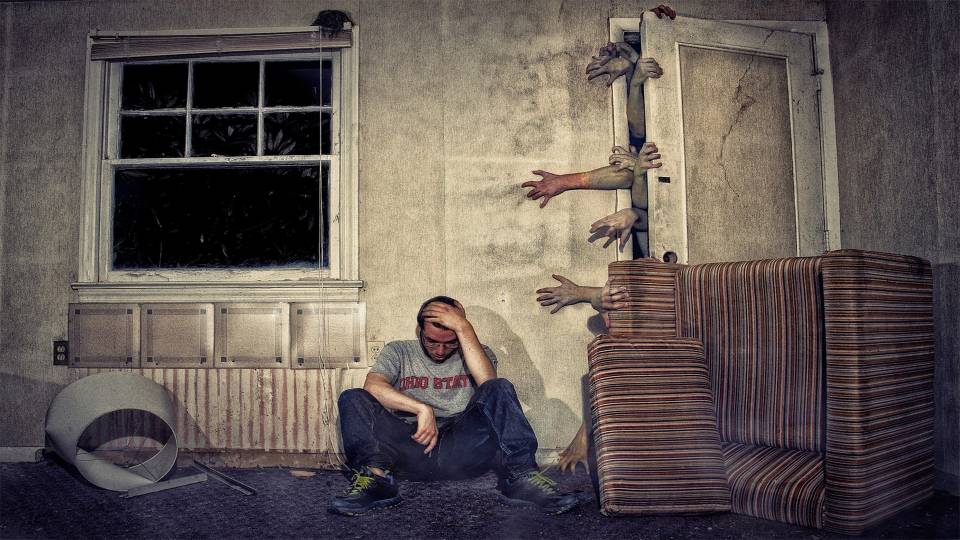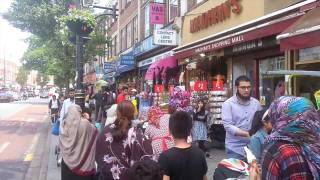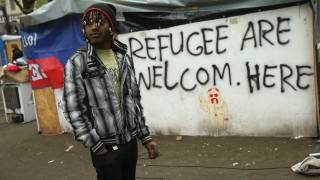Diversity is Destroying the Cohesion and Social Capital of Western Nations
The academic world is totally dedicated to the diversification of all White-created nations. The research effort, the collection of data, the preparation of surveys, the proposals for lucrative grants, the long string of mediocre articles and books regularly published, are overwhelmingly biased in favour of mass immigration. It is assumed among all academics that White "homogeneous communities" without a program of diversification are inherently "backward looking", "reactionary", "anti-democratic", devoid of "youth" and "energy", and out of touch with the "requirements" of the times.
Before 2006 or so, most of the studies on the merits of diversity were not really empirical assessments but theoretical postulations about the value of increasing opportunities for minorities, celebrating multiculturalism, and implementing policies that would improve racial equality. While there were empirical studies on racial inequalities and the effects of such inequalities on community cohesion, there were few studies on immigration-induced diversity. This should not surprise us. Mass immigration only started to gather real momentum in Europe in the early 2000s, and the rising proportion of immigrants in Australia, Canada, and the United States became really noticeable, a subject of much debate in the media, around the same time.
Organized calls for mass immigration from the Third World were coming primarily from business lobbies looking for cheap labour and mass consumers. Academics were happily producing theoretical works on the supposed merits of multiculturalism and willingly supporting mass immigration without much empirical evidence about its supposed benefits or costs. Their support was more a result of their obsession with racial equality, their opposition to Western colonization of Third World peoples, and the increasing identification of whiteness per se with racism.
But soon enough, in the early 2000s, studies started coming out assessing the consequences of diversification. From the beginning, however, these studies tended to be guided by the idea that diversity was a positive goal. No academic was questioning the program itself. Such opposition was deemed to be "bigoted" and "ignorant", not for the educated, beyond the orbit of research proposals. Empirical studies were framed in such a way that negative findings about immigration were categorized as "challenges" to be overcome with further "integration" proposals and calls for policy initiatives to increase opportunities for immigrants. Negative reactions by White members of the host nation were not allowed to enter into the "empirical data" but were summarily disqualified as indications that the community was "xenophobic". Only the criticisms of minorities, or conformists on the left, about "lack of affirmative action," or "lack of integration efforts", was counted as evidence, not against the program, but as further confirmation of the need to expand the program.
Robert Putnam
But suddenly, in the year 2006, a study by Harvard professor Robert Putnam was released, based on detailed interviews of nearly 30,000 people across America, showing that the greater the diversity in a community, the less people trusted each other, the less they gave to charity and worked on projects to improve the community, and the less they voted. In those communities supposedly enriched by diversity, neighbors trusted one another about half as much as they did in those communities that remained homogeneously White.
Putnam defined this decline in community or public engagement as a decline in "social capital". By "social capital" Putnam meant all those “social networks” through which people do things for each other, engage in collective-public action, such as "in friendship networks, neighborhoods, churches, schools, bridge clubs, civic associations and even bars." These social networks, according to Putnam don't just promote "warm and cuddly feelings, but encourage a wide variety of specific community benefits that flow from the trust, reciprocity, information, and cooperation" that is intrinsic to these networks.
Surveying the citizens of 41 American communities on a whole range of questions about their social networking, Putnam argued that the US had experienced a substantial decline in social capital in those communities that were diversified. Neighborhoods in less diversified communities were safer; the people were more involved in community projects, and more citizens voted. In conclusion, Putnam noted that people in more diverse communities tend to
distrust their neighbors, regardless of the color of their skin, to withdraw even from close friends, to expect the worst from their community and its leaders, to volunteer less, give less to charity and work on community projects less often, to register to vote less, to agitate for social reform more but have less faith that they can actually make a difference, and to huddle unhappily in front of the television.
Putnam, a typical academic committed to diversity, kept his study hidden for some years. When he went public with the findings, he immediately adopted the attitude every academic adopts when facing inconvenient facts: he called for more education and integration programs to overcome the negative effects of diversity. He actually looked forward to the day when European communities would alter their social identities as "French", "British", "German" for "more encompassing identities", a "new, more capacious sense of 'we'", that is, a sense of "us" that includes millions of non-Europeans.
Read the rest of Richardo Duchesne’s article here.






















